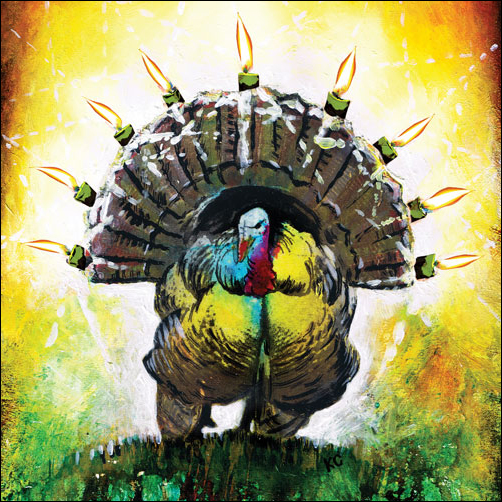
Light a candle or two this Thanksgivukkah
Where are you in the stories of the two holidays that just happen to coincide this year?
Or you might want to consider what the two holidays do—and don’t—have in common, and what we might learn by layering the two celebrations.
Hanukkah and Thanksgiving are, after all, two holidays that are rooted in historical events: the triumph of the Jews over their Syrian-Greek oppressors and their return to restore the Temple in the case of Hanukkah; and, in the case of Thanksgiving, the celebration of the survival of the tattered remains of the group of Pilgrims who came to America seeking religious freedom and who made it through only because of the help they received from Tisquantum (Squanto), a Wampanoag man.
Surely, if there’s anything UUs can get behind it’s celebrations of people attaining the right to freedom of religion, of the struggle to be true to your own beliefs even in the face of seemingly insurmountable opposition. Light a candle, if you will, for the determination of people across history who refused to allow oppression to stop them from following the path of their own faith.
Hanukkah and Thanksgiving are also both stories of coming home. The Jews return from years of guerilla warfare in the mountains to the home and the holy site the Syrian-Greeks had stolen from them, to a place desecrated and despoiled. Undaunted, they set in to restoring what has been lost the best they can, knowing that it will never be the same. The Pilgrims find a new home across the sea—a home that is far less hospitable than what they imagined, but where they nonetheless are determined to put down roots and carry on.
Given that Thanksgiving is celebrated at the end of the first day of Hanukkah (which starts the evening of Wednesday the 27th) or on the second night, go ahead and light another candle for coming home, and for the determination to create home even under the most brutal of circumstances.
And then, if you will, consider on this day of Thanksgiving where you might stand in either of these stories. Do you, at this point in your life, most resemble the Jews fighting for their religious freedom, or might you be part of the occupying force? Are you someone who has undertaken a dangerous journey to a new land of freedom, or do you relate to the man who chose to help the settlers in spite of the havoc that Europeans had already wreaked on his people? Do you live as occupier or occupied, resistance fighter or standing army, or maybe some of each?
As you sit down to your gathered meal, consider that none of our stories are ever simple, that what we “know” rarely looks quite like what happened, that our location in history and myth can waver as our understandings change. But consider, also, that we belong to these myths, this history, that we are changed every time we allow ourselves to be moved by what has come before. So consider, remember, light a candle, and give thanks.
Illustration (detail, above): © 2013 Karen Coleman (www.karenmariecoleman.com). See sidebar for links to related resources.
Comments powered by Disqus






